Allergic reactions? They are SO BORING! Not so fast, my fine learners! New information suggests otherwise.

Dr. Will Savage
A Bigger Problem
However, Dr. Savage and his colleagues (primarily from his previous position at Johns Hopkins University) have spent the last few years studying allergic reactions in-depth, and they have shown in numerous recent publications that we don’t yet fully “get it” with ATRs. In fact, what he has to say may surprise you!
From my perspective, the work that Will has been involved in (much of which is referenced in the links at the bottom of this page) has completely changed the way I look at these reactions! Yes, they are a nuisance, but they are a nuisance that really impacts patients to a much greater degree than I understood in the past.

Dr. Will Savage
Allergic reactions have become pretty widely known as “nuisance reactions” to blood bankers and clinical staff (“Dang it! Another patient with hives!”), and it’s easy to think that they are just no big deal.
A Bigger Problem
However, Dr. Savage and his colleagues (primarily from his previous position at Johns Hopkins University) have spent the last few years studying allergic reactions in-depth, and they have shown in numerous recent publications that we don’t yet fully “get it” with ATRs. In fact, what he has to say may surprise you!
From my perspective, the work that Will has been involved in (much of which is referenced in the links at the bottom of this page) has completely changed the way I look at these reactions! Yes, they are a nuisance, but they are a nuisance that really impacts patients to a much greater degree than I understood in the past.
The images below are generously provided by Dr. Savage.
Further Reading:
- Tobian AAR et al. Transfusion premedications: a growing practice not based on evidence. Transfusion 2007;47:1089-1096.
- Tobian AAR et al. Prevention of allergic transfusion reactions to platelets and red blood cells through plasma reduction. Transfusion 2011;51:1676-1683.
- Savage WJ et al. Allergic transfusion reactions to platelets are associated more with recipient and donor factors than with product attributes. Transfusion 2011;51:1716-1722.
- Savage WJ et al. Atopic predisposition of recipients in allergic transfusion reactions to apheresis platelets. Transfusion 2011;51:2337-2342.
- Savage WJ et al. Scratching the surface of allergic transfusion reactions. Transfusion 2013;53:1361-1371.
- Savage WJ et al. Defining risk factors and presentations of allergic reactions to platelet transfusion. J Allergy Clin Immunol 2014;133(6):1772-1779.e9.
- Savage WJ et al. Transfusion and component characteristics are not associated with allergic transfusion reactions to apheresis platelets. Transfusion 2015;55:296–300.

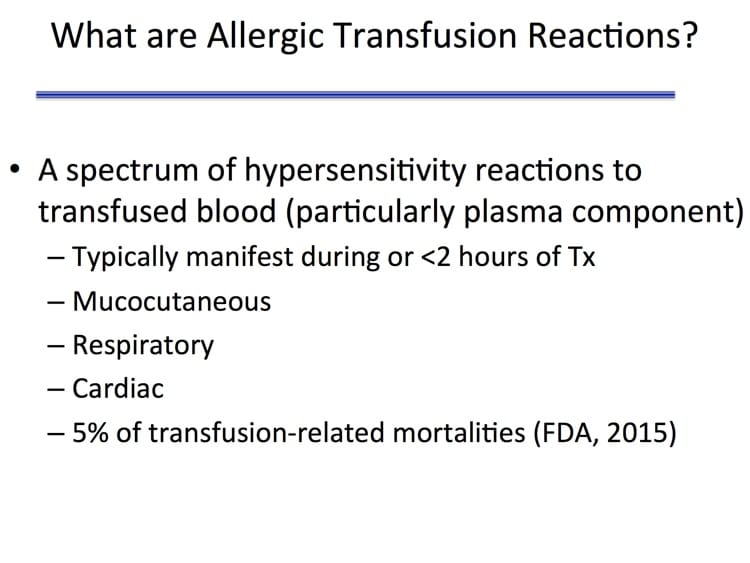
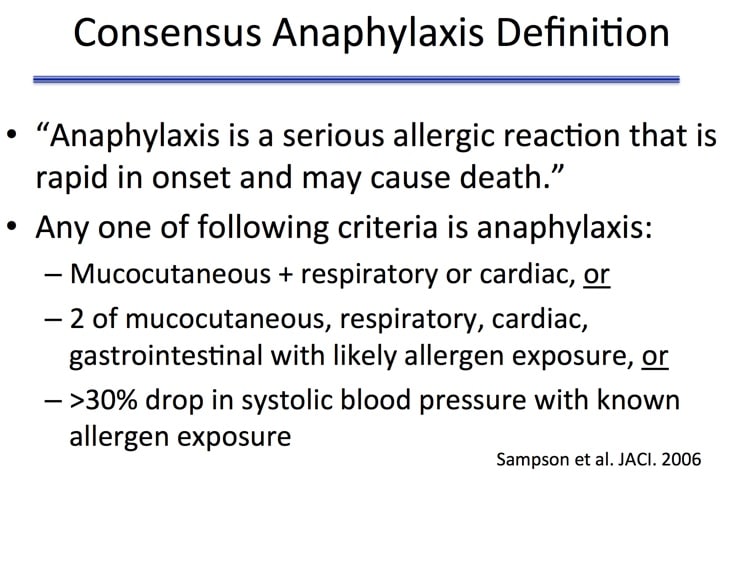
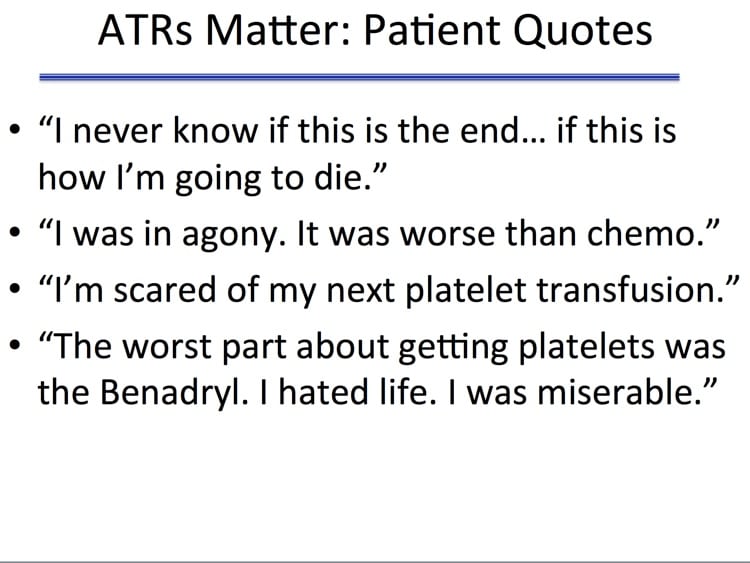
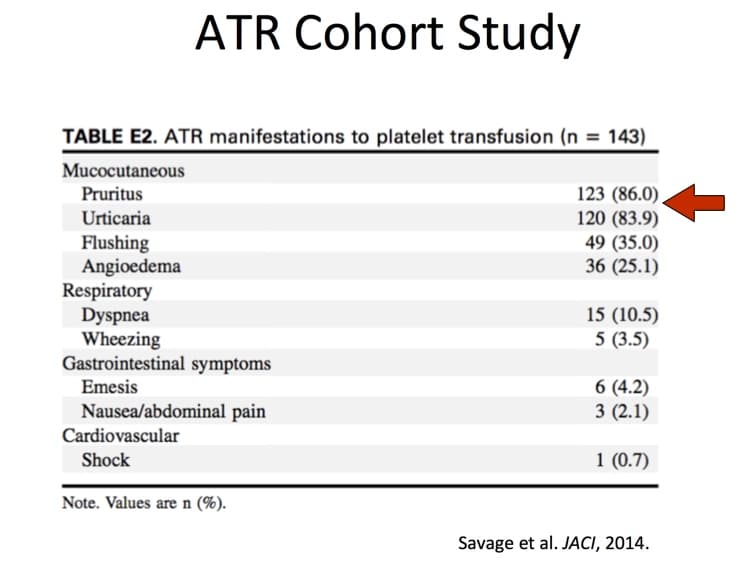
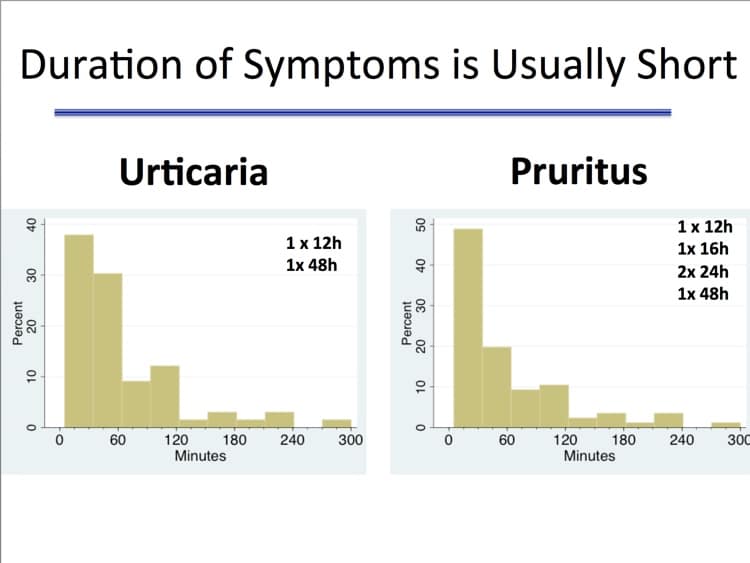
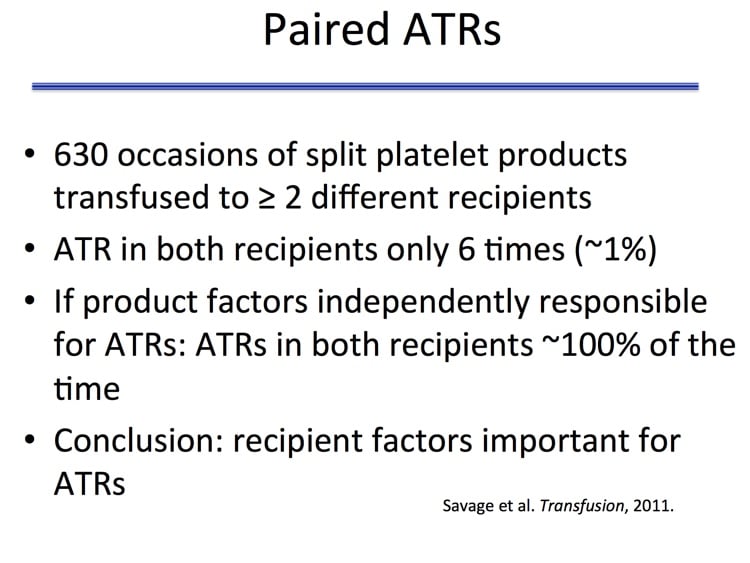
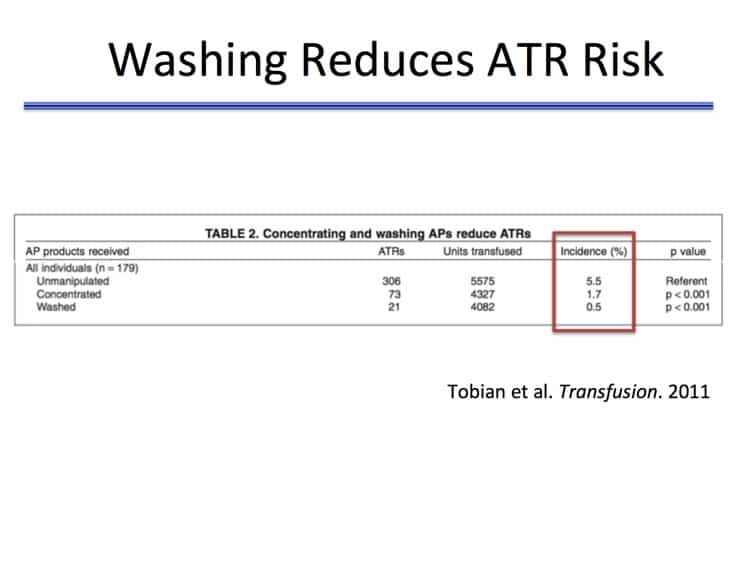
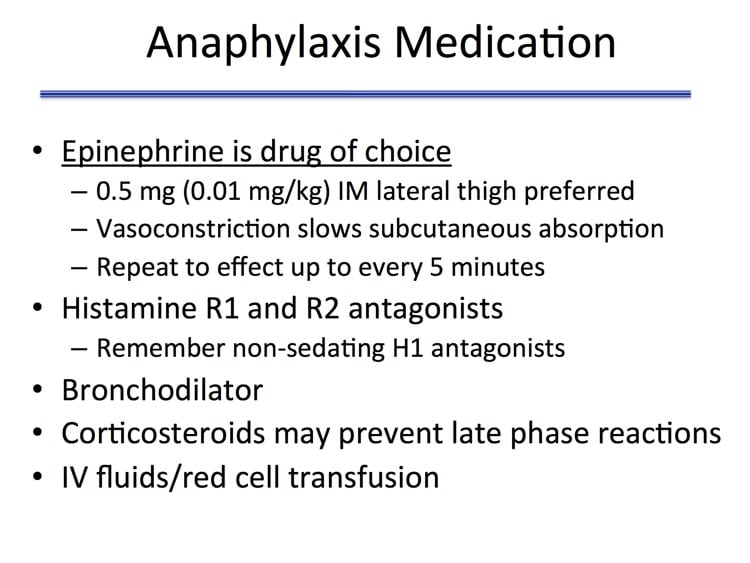
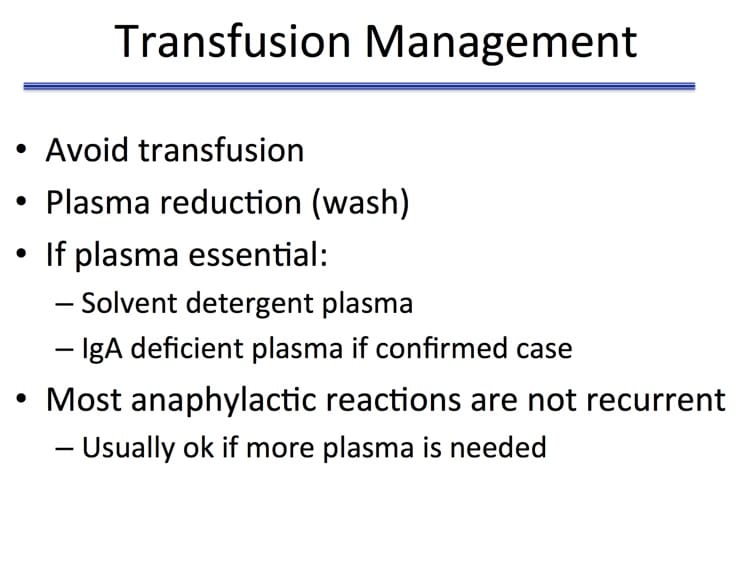
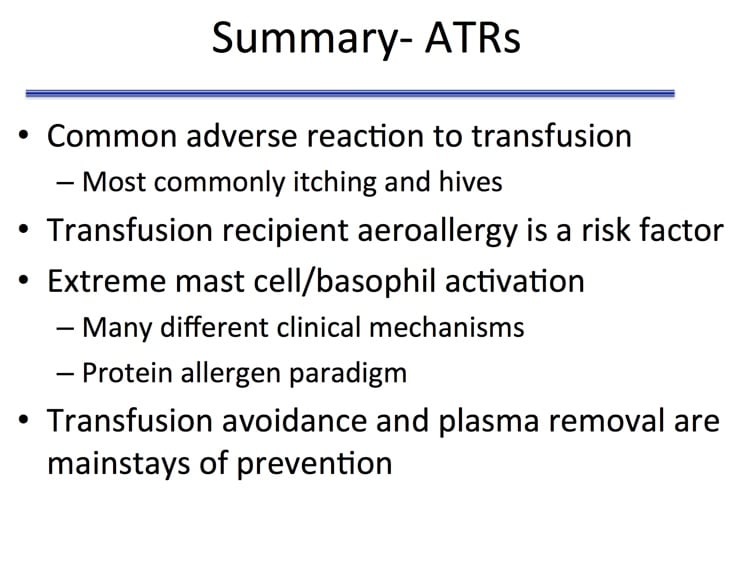



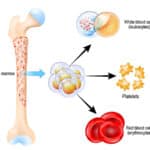

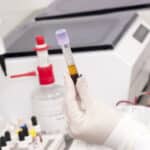



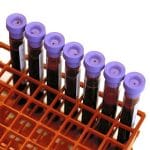

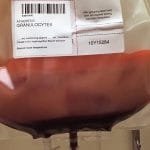
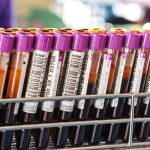
I have listened to this podcast more than once, maybe three times. There is so much to consider when thinking about the management of patients with frequent allergic reactions. Think beyond Benadryl is my first take away.
Thank you Joe and Dr Savage
Thank you, Clare. I agree; this interview really opened my eyes to take mild allergic reactions much more seriously.
-Joe